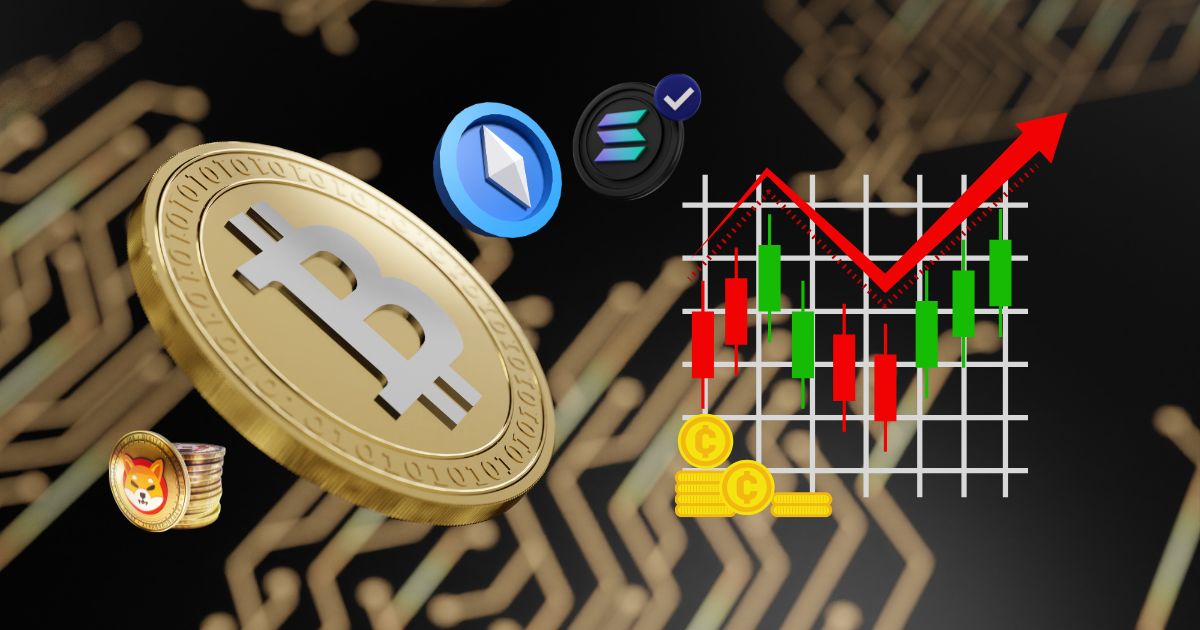Introduction: Is Crypto Right for You? Cryptocurrency has emerged as a transformative force in the financial world. With Bitcoin’s recent surge to approximately $95,000, many are considering it as a viable investment option . But before diving in, it’s crucial to understand the fundamentals.
🧭 Table of Contents Understanding Cryptocurrency
- Short History of Cryptocurrency
- Understanding Cryptocurrency
- Choosing the Right Cryptocurrency Exchange
- Setting Up a Secure Wallet
- Developing an Investment Strategy
- Staying Informed and Secure
- Conclusion
A Short History of Cryptocurrency
🔹 1. The Idea (1980s–2000s)
- The concept of digital money started in the 1980s.
- Early systems like DigiCash and e-gold tried to create digital currencies, but they were centralized and eventually shut down.
🔹 2. The Birth of Bitcoin (2008–2009)
- In 2008, a person or group under the name Satoshi Nakamoto published a white paper titled “Bitcoin: A Peer-to-Peer Electronic Cash System.”
- In 2009, Bitcoin was launched as the first decentralized cryptocurrency — meaning no bank or government controls it.
🔹 3. Growth and Adoption (2010–2015)
- In 2010, Bitcoin got its first real-world value when someone paid 10,000 BTC for two pizzas (now worth millions!).
- More people started mining and trading Bitcoin.
- New cryptocurrencies like Ethereum (2015) came, allowing developers to build apps on blockchain.
🔹 4. Crypto Boom (2017–2021)
- In 2017, Bitcoin’s price reached $20,000 for the first time, creating massive global interest.
- Thousands of new cryptocurrencies (called altcoins) were created.
- Terms like blockchain, NFTs, and DeFi became popular.
🔹 5. Mainstream & Regulation (2021–Now)
- Big companies like Tesla, PayPal, and Visa started accepting or investing in crypto.
- Governments began creating rules and regulations.
- Bitcoin hit an all-time high of over $68,000 in 2021.
- New trends like AI-powered crypto tools and CBDCs (Central Bank Digital Currencies) started emerging.
🧠 Understanding Cryptocurrency:
Understanding Cryptocurrency: Cryptocurrency is a digital or virtual form of money secured by cryptography, making it nearly impossible to counterfeit. Unlike traditional currencies (like the US Dollar or Euro), it is not printed or controlled by any central authority, such as a bank or government. The most well-known cryptocurrency is Bitcoin, but there are thousands of others, including Ethereum, Binance Coin, and Tether.
Key Points:
- Decentralization: Operates on a technology called blockchain, which is a distributed ledger enforced by a network of computers (nodes).
- Volatility: Prices can be highly volatile, with significant fluctuations over short periods.
- Accessibility: Can be accessed and traded 24/7 on various platforms.
🪙 What Exactly Is Cryptocurrency?
At its core, cryptocurrency is digital money — you can’t touch it like coins or notes, but you can send, receive, and store it using your phone or computer.
Each cryptocurrency operates on its own blockchain, a public digital ledger where all transactions are recorded in a secure, transparent, and permanent way.
🔗 Blockchain: The Foundation of Cryptocurrency
Blockchain is the key innovation behind cryptocurrency. Think of it as a chain of digital “blocks” that store transaction data. These blocks are linked together in a sequence — hence the name block-chain.
- Each block contains a list of transactions.
- Once a block is full, it’s added to the chain and becomes unchangeable.
- This system is maintained by a decentralized network of computers, called nodes, all over the world.
✅ Why it matters: This technology makes cryptocurrencies trustless — you don’t need to trust a middleman like a bank because the system verifies everything automatically.
📈 Volatility: Why Crypto Prices Fluctuate So Much
Cryptocurrencies are known for being highly volatile. That means their prices can go up or down dramatically in short periods of time.
For example:
- Bitcoin might be worth $50,000 today and drop to $42,000 tomorrow.
- A new coin might go viral and double its price in a few hours — or crash just as fast.
Reasons for volatility:
- Market speculation (people buying/selling based on news and hype)
- Lack of regulation
- New and evolving technology
- Limited supply (e.g., Bitcoin has a cap of 21 million coins)
🔔 Investor Tip: Volatility can create big opportunities, but also big risks — especially for beginners.
🌐 Accessibility: Open to Anyone, Anytime
One of the most exciting things about cryptocurrency is that it’s globally accessible:
- You only need an internet connection and a digital wallet.
- No need for a bank account or government ID (though some exchanges require KYC).
- You can send money across the world in minutes, with low fees.
Whether you’re in New York or a remote village, you can participate in the crypto economy — 24/7, 365 days a year. No holidays. No banking hours.
💡 Examples of Popular Cryptocurrencies
Here are some of the top cryptocurrencies today:
| Cryptocurrency | Symbol | Purpose/Use |
| Bitcoin | BTC | Digital gold; store of value |
| Ethereum | ETH | Smart contracts, decentralized apps (dApps) |
| Binance Coin | BNB | Utility token for Binance exchange |
| Tether | USDT | Stablecoin pegged to USD; less volatile |
| Solana | SOL | Fast blockchain for apps and NFTs |
🏦 Choosing the Right Cryptocurrency Exchange:
Selecting a reputable exchange is vital for buying and selling cryptocurrencies.
Considerations:
- Security: Look for platforms offering two-factor authentication (2FA) and cold storage options.
- Reputation: Opt for exchanges with positive user reviews and a history of reliable service.
- Fees: Be aware of transaction fees, withdrawal fees, and any hidden charges.
- Supported Cryptocurrencies: Ensure the exchange supports the cryptocurrencies you’re interested in.
- Popular exchanges include Coinbase, Binance, and Kucoin, Gate.io and Bitget
🔐 Setting Up a Secure Wallet
After purchasing cryptocurrency, it’s essential to store it securely.
Types of Wallets:
- Hot Wallets: Online wallets connected to the internet, offering convenience but are more susceptible to hacks.
- Cold Wallets: Offline wallets, such as hardware wallets, providing enhanced security for long-term storage.
- Security Tips:
- Use strong, unique passwords for your wallet accounts.
- Enable two-factor authentication (2FA).
- Regularly back up your wallet and store recovery phrases in a secure location.
📈 Developing an Investment Strategy
A well-thought-out strategy can help mitigate risks and maximize potential returns.
Tips:
- Start Small: Begin with a modest investment to familiarize yourself with the market dynamics.
- Diversify: Don’t put all your funds into one cryptocurrency. Spread your investments across different assets.
- Set Goals: Define your investment objectives, whether it’s short-term gains or long-term growth.
- Risk Management: Only invest what you can afford to lose and consider using stop-loss orders to limit potential losses.
📚 Staying Informed and Secure
The cryptocurrency landscape is constantly evolving.
Stay Updated:
- Follow reputable news sources and forums to keep abreast of market trends.
- Educate yourself about common scams and phishing attempts to protect your investments.
Security Best Practices:
- Regularly update your software and wallets.
- Be cautious of unsolicited offers and always verify the authenticity of sources before sharing personal information.
✅ Conclusion
Investing in cryptocurrency can be rewarding, but it’s essential to approach it with caution and knowledge. By understanding the basics, choosing reputable platforms, and implementing sound strategies, you can navigate the crypto space more confidently.
Remember, always conduct thorough research and consider seeking advice from financial professionals before making significant investment decisions.
Cryptocurrency is more than just “digital money” — it’s a new financial system being built on technology, transparency, and decentralization. For beginners, it may seem complex at first, but with a little time and learning, it becomes much easier to grasp.
It’s changing how we think about money, investing, and even privacy. Whether you choose to invest or not, understanding how it works is a smart move in today’s digital world.
Interested in delving deeper into the world of cryptocurrency? Stay tuned for the latest insights, tips, and updates on the crypto market.






